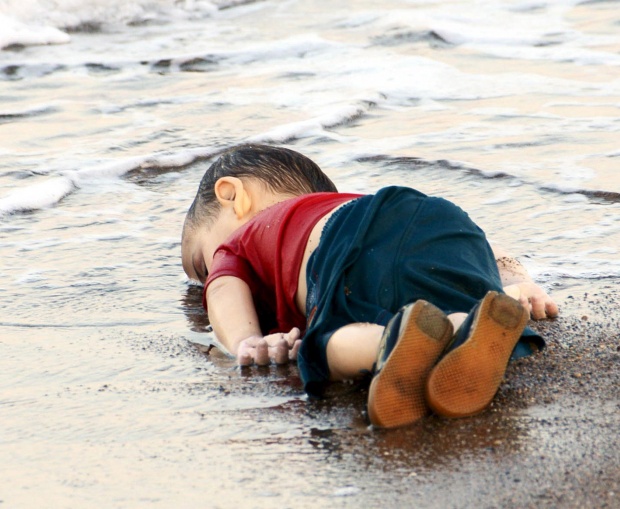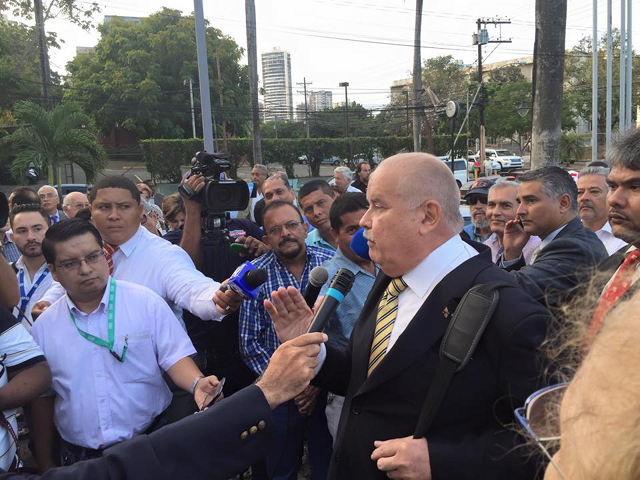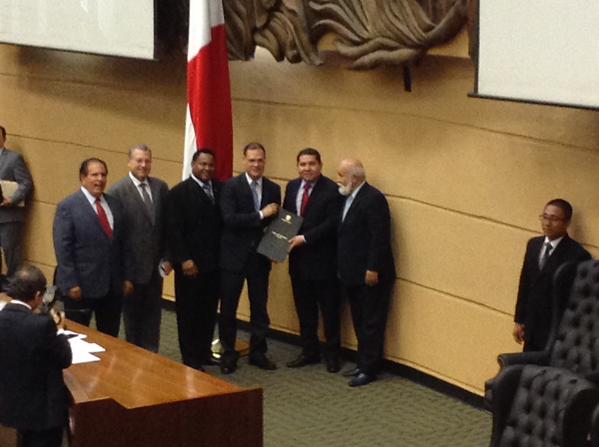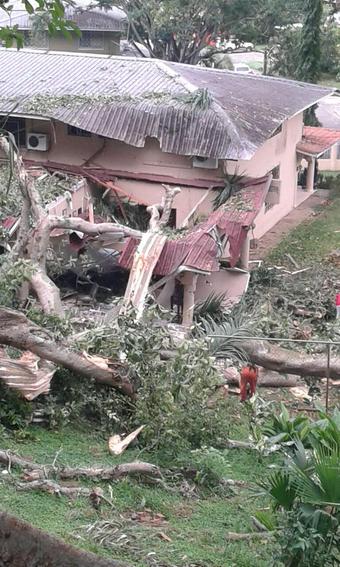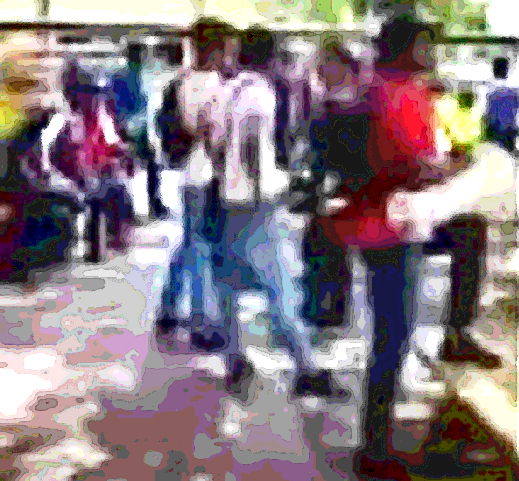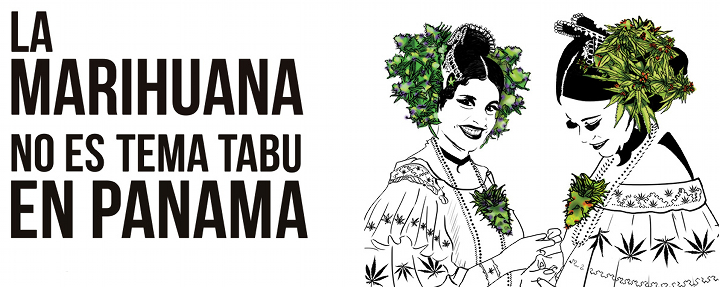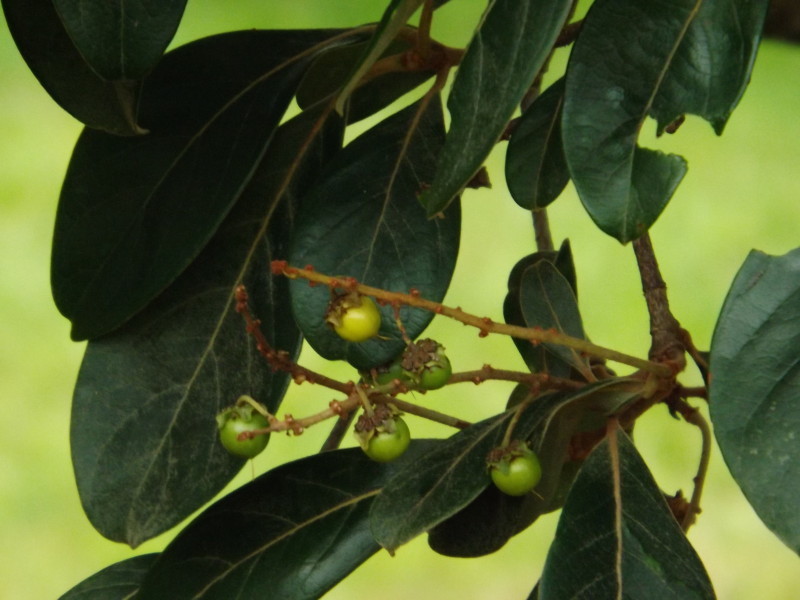 Oración por la creación y protección del medio ambiente
Oración por la creación y protección del medio ambiente
por Monseñor José Domingo Ulloa Mendieta Osa — Arzobispo de Panamá
Por qué la Iglesia se interesa por estos temas? ¿Es sólo por moda, por seguir la corriente? ¿Es una distracción de nuestra misión evangelizadora? ¿Es pura política? ¿Tiene que ver con la fe cristiana?
Frente a estos otros muchos interrogantes, reiteramos la Iglesia tiene una responsabilidad respecto a la creación y se siente en el deber de ejercerla también en el ámbito público, para defender la tierra, el agua y el aire, dones de Dios Creador para todos, y sobre todo para proteger al hombre frente al peligro de la destrucción de sí mismo. Porque al cuidar la creación, vemos que Dios, a través de ella, cuida de nosotros”. Por eso esta jornada es una invitación a todos los hombres y mujeres de buena voluntad pero especialmente a los cristianos a tomar consciencia de que estamos llamados a custodiar la Creación.
El Papa Francisco, emulando a nuestros hermanos de la Iglesia Ortodoxa presidida por su Excelencia el Patriarca Ecuménico Bartolomé I, ha instituido en la Iglesia Católica, a partir de este año la “Jornada Mundial de Oración para el Cuidado de la Creación”; que ya entre nuestros hermanos Ortodoxos se realiza desde 1989. Ambos coinciden en que la locura del hombre de creerse dueño y amo y no custodio de la creación nos llevara tristemente a nuestra destrucción.
Pues la situación que vivimos es: Un “grito de alarma” por el desastre climático que afecta cotidianamente a los hombres y la naturaleza. El papa Francisco conjuntamente con el Patriarca Bartolomé han señalado amargamente que “Nosotros, los hombres somos los destructores de la creación con nuestra codicia, con nuestro apego a la tierra, los bienes de la tierra, esforzándose constantemente para aumentarlos, como el ‘ rico tonto’ del Evangelio”. Ambos han coincidido en señalar que la “basura” con la cual se llena la tierra es tan “material”, como “espiritual”. Por ello, el compromiso por “la protección de toda la creación”, tiene necesidad del anuncio cristiano: “la obra evangélica, una labor apostólica: para convertir… la buena noticia del Evangelio en el mundo de hoy, despertando la naturaleza espiritual somnolienta del hombre muy a menudo probada”. Este anuncio debe hacerse “en forma versátil y multifacética”, para “transmitir un mensaje de esperanza y de paz y la verdadera alegría de la paz y la alegría en Cristo”. Ante la profunda crisis ambiental, se nos invita a una conversión ecológica, que implica dejar brotar todas las consecuencias de nuestro encuentro con Jesucristo en las relaciones con el mundo que nos rodea. De hecho, se nos advierte que vivir la vocación de ser protectores de la obra de Dios es parte esencial de una existencia virtuosa, y que no consiste en algo opcional ni en un aspecto secundario de la experiencia cristiana.
Que buena ocasión nos ofrece esta jornada para invitar a los distintos sectores de las sociedades para cumplir un urgente diálogo sobre cómo estamos construyendo el futuro del planeta, y la necesidad de que todos nos impliquemos. Y que estas reflexiones nos puedan llevar a “una profunda conversión ecológica capaz de expresarse en diferentes ámbitos de la vida humana: en los estilos de vida, en la educación, en el diálogo entre ciencia, la cultura y la fe; en las líneas maestras de las políticas nacionales y en las negociaciones internacionales”.
La Creación en el Plan de Dios
Y es que desde la fe no miramos el universo solamente como la naturaleza considerada en sí misma, sino como creación y primer don del amor del Señor por nosotros. “Del Señor es la tierra y cuanto hay en ella; el orbe y los que en él habitan” (Sal 24,1), esta afirmación recorre toda la Biblia y confirma que la tierra es el primer signo de la Alianza de Dios con el ser humano. La revelación bíblica nos enseña que cuando Dios creó al hombre, lo colocó en el jardín del Edén para que hiciera uso de él (cf. Gen 2,16) señalándole unos límites (Gen 2,17), que recuerdan al ser humano que Dios es el Señor y Creador y de Él es la tierra y todo lo que contiene. Dios entrega a los seres humanos toda la creación, para desarrollar su vida y las de sus descendientes. Estos límites miran a preservar la justicia y el derecho que todos tienen a los bienes de la creación, que Dios destinó al servicio de todos. Las criaturas del Padre le dan gloria “con su sola existencia”, y, por eso, el ser humano debe hacer uso de ellas con cuidado y delicadeza. Nosotros podemos usarlas, no como dueños absolutos, sino como administradores. Pidamos al Señor que esta jornada de oración ayude a todos a tomar conciencia de la responsabilidad ecológica que tenemos en el cuidado de la creación y que nos motive para convertirnos en custodios permanentes de la belleza de la creación. Y es que “proteger la naturaleza no es algo opcional o secundario, sino parte esencial de la vida cristiana”. Con esta jornada “queremos ofrecer nuestra contribución para superar la crisis ecológica que está viviendo la humanidad”… “vivimos en un tiempo en el que todos los cristianos afrontamos idénticos e importantes desafíos, a los que debemos dar respuestas comunes, si queremos ser más creíbles y eficaces”.
Panamá ya sufre los efectos de la tala indiscriminada, de la devastación de cerros y manglares, “debidamente autorizados” para la construcción de barriadas y villas. La falta de agua potable, en un país con grandes fuentes hídricas, es evidente no solo en zonas apartadas de la ciudad, sino en comunidades cercanas a la urbe capitalina. Crece la migración de los pueblos originarios y campesinos hacia las ciudades en busca de mejores condiciones de vida, porque no encuentran sustento en el cultivo ni en el ganado de sus tierras.
El cambio climático y el fenómeno del Niño producen inundaciones y sequías, que condicionan la seguridad alimentaria, la salud y supervivencia del Planeta; y ponen en peligro la existencia de especies animales y hasta de la misma humanidad. Todo esto es el resultado de una producción salvaje, priorizada por encima del cuidado de nuestros recursos naturales.
No es posible esconder detrás de políticas públicas, la responsabilidad moral de aquellos que en nombre del desarrollo y el crecimiento económico, ponen en peligro la vida de millones de personas. Al respecto el Papa manifestó que: “El ambiente humano y el ambiente natural se degradan juntos, y no podremos afrontar adecuadamente la degradación ambiental si no prestamos atención a causas que tienen que ver con la degradación humana y social”. Y denuncia que: “La exclusión social, la violencia, el narcotráfico y el consumo creciente de drogas entre los más jóvenes son signos que muestran que el crecimiento de los últimos dos siglos no ha significado un verdadero progreso”. Para el Papa Francisco “Cuando no se reconoce el valor de un pobre, de un embrión humano, de una persona con discapacidad; difícilmente podremos escuchar los gritos de la naturaleza”.
Solo un modelo de desarrollo alternativo e integral basado en una auténtica ecología humana puede ubicarnos en el rumbo que Dios nos propuso con su Creación. Nos dice el Santo Padre que cuando cada uno haya asumido a plenitud su responsabilidad como Custodio de la Casa Común, y reconozcamos que respiramos el mismo aire, que consumimos la misma agua y que nos toca cuidar ese ambiente que compartimos, estaremos encaminados a asegurarles a nuestros hijos un entorno saludable para lograr a plenitud un futuro mejor.
Por eso cómo permanecer indiferentes ante los problemas que se derivan de fenómenos como el cambio climático, la desertificación, el deterioro y la pérdida de productividad de amplias zonas agrícolas, la contaminación de los ríos y de las capas acuíferas, la pérdida de la biodiversidad, el aumento de sucesos naturales extremos, la deforestación de las áreas ecuatoriales y tropicales? Todas estas son cuestiones que tienen una repercusión profunda en el ejercicio de los derechos humanos como, por ejemplo, el derecho a la vida, a la alimentación, a la salud y al desarrollo. No son menos preocupantes los peligros causados por el descuido, e incluso por el abuso que se hace de la tierra y de los bienes naturales que Dios nos ha dado. Por este motivo, es indispensable que la humanidad renueve y refuerce esa alianza entre ser humano y medio ambiente que ha de ser reflejo del amor creador de Dios, del cual procedemos y hacia el cual caminamos.
“Todos somos responsables de la protección y el cuidado de la creación. No se puede permanecer indiferente ante lo que ocurre en nuestro entorno, porque la degradación de cualquier parte del planeta afectaría a todos. Mientras los países más contaminantes se resisten a controlar sus industrias, nosotros cuidemos los árboles, los ríos, los manantiales. En las tierras en declive, hay que hacer bordos o terrazas, para que la tierra buena no se vaya al río con las lluvias. Si necesitas cortar un árbol, siembra y cuida diez. Aprende a manejar la basura. No te dejes engañar por los agroquímicos. Elabora y usa abonos orgánicos. Evita los incendios destructivos. Ama y cuida la tierra, nuestra casa común.
La ecología en el pensamiento de la Iglesia
En el documento del CELAM en Aparecida se nos recuerda la importancia de tomar conciencia de la naturaleza como una herencia gratuita que recibimos para proteger la convivencia humana de modo responsable para bien de todos. La explotación irracional de los bienes de la creación deja consecuencias preocupantes en las que tiene una enorme responsabilidad el desmedido afán por la riqueza, la actitud egoísta por encima de la vida de las personas en especial de los campesinos e indígenas, que tienen que migrar a las grandes ciudades para salir de la miseria. Hay que progresar en el desarrollo para valorar las riquezas de la tierra y su capacidad al servicio del bien común, evitando la industrialización descontrolada, que contamine con desechos orgánicos y químicos y produzca eliminación de bosques, contaminación del agua y mayor desertificación.
Por eso la ecología es el mayor reto para la humanidad en el siglo XXI
Y esto es así porque la tierra está seriamente amenazada, si seguimos obrando como hasta ahora, podríamos destruir la herencia que recibimos y comprometer el futuro de las nuevas generaciones. El modelo de desarrollo que hemos adoptado desde la segunda guerra mundial se basa en una economía que destruye la naturaleza que se ve frágil e indefensa ante los intereses económicos y tecnológicos. Las intervenciones sobre los recursos naturales no pueden arrasar irracionalmente las fuentes de vida, en perjuicio de la misma humanidad.
La familia puede y debe ser una escuela para manejar adecuadamente los bienes de la creación. En ella, el comportamiento de cada uno da coherencia y autoridad moral para trabajar por la ecología. Desde ella se puede cambiar la mentalidad y las acciones de toda la sociedad. Hay que tener la firme convicción de que la ecología empieza en casa.
Los cristianos estamos llamados, por fidelidad al Evangelio, a influir en los gobernantes y en las legislaciones que tienen que ver con la ecología. De este modo la familia se convierte en “fermento de un mundo nuevo” promoviendo la conciencia y el compromiso con el bien de la creación. Las generaciones que nos sucedan tienen derecho a recibir un mundo habitable y no un planeta contaminado. Por ello hay que comprometerse en acciones concretas:
Evangelizar para descubrir y cuidar el don de la creación, educando en un estilo de vida de sobrio, austero y solidario, ejercitando responsablemente el señorío humano sobre la tierra, para que rinda sus frutos en su destinación universal.
Profundizar la presencia eclesial en las poblaciones más amenazadas y apoyarlas en la gestión de la tierra, del agua y de los espacios urbanos.
“Hermanos la sociedad actual no hallará una solución al problema ecológico si no revisa seriamente su estilo de vida. En muchas partes del mundo esta misma sociedad se inclina al hedonismo y al consumismo, pero permanece indiferente a los daños que éstos causan. Como ya he señalado, la gravedad de la situación ecológica demuestra cuán profunda es la crisis moral del hombre. Si falta el sentido del valor de la persona y de la vida humana, aumenta el desinterés por los demás y por la tierra… Hay, pues, una urgente necesidad de educar en la responsabilidad ecológica: responsabilidad con nosotros mismos y con los demás, responsabilidad con el ambiente. No se debe descuidar tampoco el valor estético de la creación. El contacto con la naturaleza es de por sí profundamente regenerador, así como la contemplación de su esplendor da paz y serenidad…” (Juan Pablo II, Mensaje para la celebración de la Jornada Mundial de la Paz, No.1990).
“Es necesario que la promoción del desarrollo tendiente a satisfacer las necesidades del presente no comprometa las capacidades de las generaciones futuras para cubrir sus propias necesidades. Por ello es preciso que el desarrollo se pueda sostener y hacer viable a mediano y largo plazo. Es necesario tomar en cuenta tres factores fundamentales para ello: la promoción de la responsabilidad social de las actividades productivas, el respeto y cuidado del medio ambiente natural y el respeto y promoción de la persona humana, de sus valores y de su cultura.” (Conferencia del Episcopado Mexicano, “Del encuentro con Jesucristo a la solidaridad con todos”, 2000)
.
El papa Francisco dijo que se espera que esta jornada se convierta en una valiosa oportunidad para renovar nuestra vocación de ser “custodios de la creación”. “Además es una ocasión para dar gracias a Dios por la maravillosa obra que Él nos ha confiado, invocando su ayuda para la protección de la creación y su misericordia por los pecados cometidos contra el mundo en el que vivimos”.
Oracion para rezar el domingo y en el dia de la jornada de oracion por el cuidado de la creacion
Dios, Nuestro Señor, Tú que con tu propio poder, estableciste las edades y los tiempos. Tú que con infinita compasión y bondad, nos da valor para entrar al espacio de Tu amor, bendícenos y consérvanos en paz en tu trayectoria. Pedimos que perdones nuestros errores y consérvanos en lo sucesivo limpios ante Ti. Ilumínanos con la luz de Tu divino mandamiento y de Tu verdad.
Fija dentro de nuestras almas Tu santa voluntad, condúcenos a todos hacia el bien y lo que es agradable para Ti. Con tu infinita gracia salvaguarda nuestra Santa Iglesia. Ten en cuenta este país Panamá, con su natural y bello ambiente. Ilumina a todos los responsables para el uso adecuado de los bienes y a los gobernantes una buena administración para este pueblo tan bueno y bello. Dona Tu paz a Tu pueblo y a todo el mundo. Con tu Divina fuerza, elimina las guerras y aleja el dolor de nuestros hermanos. Concede al planeta un clima agradable y fértil en frutos.
Obsequia Tu Divina iluminación a nuestros jóvenes y condúcelos por Tu camino. Apoya a la vejez. Consuela a los que tienen poca fe. Señor, que tu Reino venga a todos nosotros, Reino de amor, bondad, paz y justicia. Y damos el deseo, que con una sola voz y un solo corazón alabemos y glorifiquemos tu sagrado nombre del Padre, del Hijo y del Espíritu Santo. Amén.

